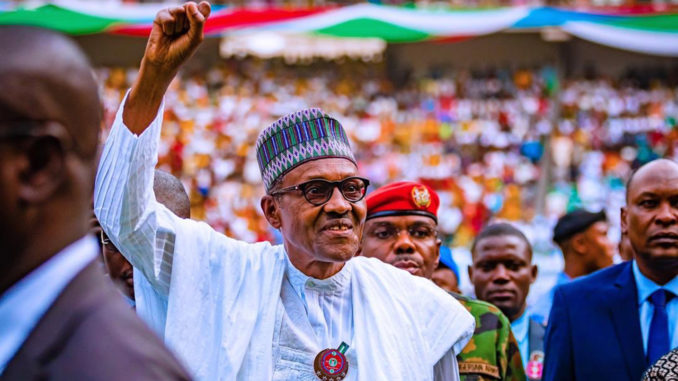
It is gladdening to note that for the first time in many years, the country’s National Assembly has passed the Federal Government budget before the New Year, thus paving the way for the restoration of the January to December budget cycle. This is indeed a big boost to effective budget implementation.
Equally gladdening is the signing into law of the 2020 budget by President Muhammadu Buhari on his 77th birthday on December 17, 2019. This implies that barring any necessary adjustments in the 2019 budget, the 2020 budget document will be the sole fiscal operational document for the country for the year 2020. This is indeed gratifying to note.
However, there are some issues in the appropriation act that should not be glossed over. First, it is worth noting that the total figure for the 2020 budget was increased by N264 billion from the N10.33 trillion budget submitted by the president to the National Assembly to the new figure of N10.594 trillion. While many have raised a concern about this development and called it various names such as “budget padding,” it may be appropriate to evaluate the veracity of the reasoning behind the increase and whether it is permissible in law.
Opinions vary in this regard but conceptually, the Constitution of the Federal Republic places the power of appropriation with the Legislature, thus empowering them to vet the financial proposals emanating from the Executive arm of government. In that regard, the National Assembly is legally empowered to make inputs into the submissions by the president since the constitution does not expect the legislature to be a mere rubber stamp of the executive, particularly when it comes to the dispensing of the resources of the federation.
The increased figure, according to the approved budget estimates was evident in no fewer than ten ministries including Works and Housing, Defence, Power, Agriculture and Rural Development, Water Resources, Education, Health as well as the FCT. The increase in the estimates for these items which are largely capital in nature tends to justify the increase as these are likely to expand the country’s productive base and enhance job creation and economic activities in those sectors. What could be worrisome would be a situation where there is potential for leakages by these increases resulting in these funds finding their way into private pockets. Budget implementation history supports this fear, in this regard.
In addition, what should be more worrisome would be any internal consistencies in the budget, which would minimise its capacity to generate the revenues as stated as well as the reliability of the assumptions it contains. For example, the adjustment of the benchmark price of crude oil in the budget from $55 per barrel to $57 appears questionable given that the international oil market has been unstable of late. The reported oversupply of the market from the U.S., for example, and the cut in production by OPEC tend to suggest that price would be an issue in 2020 and thus an over-optimistic estimate in the 2020 budget may be a recipe for failure if the oil market fundamentals go haywire over the period. The oil production estimated for 2020 in the budget also appears to be higher than the country’s OPEC quota in 2019. Does the question arise whether the 2020 oil production estimate can be sustained, at the risk of violating the allocation quota from OPEC?
Another issue is the fiscal deficit figure of N2.3 trillion, which is 1.52 per cent of GDP. It can be noted that this has followed the pattern of the federal budgets since this administration came to power in 2015 with budget deficits being the order of the day, with most times additional borrowing implications. A situation where a whopping N2.7 trillion is set aside for debt service shows clearly that Nigeria has a debt problem. The continual resort to deficit financing implies that more debts would continue to be incurred, which would continually grow Nigeria’s debt burden. Where borrowing is considered inevitable, effort should always be made to channel these debts only to social overhead capital or public infrastructure and
The need to generate more revenue for the country through the approval of the Finance Bill, in support of the 2020 budget tends to focus more on taxing the already over-taxed income earners as against those who are not already in the tax net. In enhancing the country’s tax revenue as a proportion to GDP, in comparison to what obtains in other African countries, should not be done at the detriment of the poor income earners. Doubtless, poor income earners would have no choice in the new dispensation but to cope with less disposable income, in the face of rising inflation and lower returns on their hard-earned savings.
Government needs to adjust these macroeconomic fundamentals such that while more revenues are being raised to finance the budget, life is not made too unbearable for the ordinary man who would have no choice but to further tighten his belt in the face of unfavourable monetary policies where return on savings have now become negative with the skyrocketing inflation and fall in savings rate in recent times. Effort should be made to save the real income of ordinary Nigeria, as another way of addressing the issue of pervasive poverty in the country. Lest we forget too, this is a time for the Fiscal Responsibility Commission to be alive to its responsibility of making the bureaucracy and indeed agencies of government to be organic in complying with the letter and the spirit of the 2020 Appropriation Act passed right on time.
END

Be the first to comment